Covid: Low school attendance 'will lead to inequality'
- Published
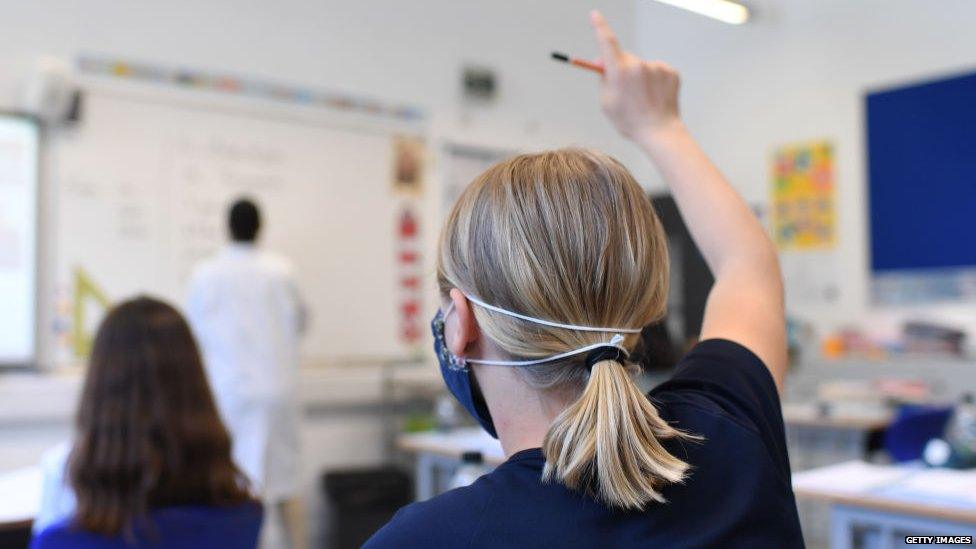
School attendance has declined since the November firebreak
"Deeply worrying" school attendance figures due to Covid will lead to more inequality, a think tank has warned.
Latest Welsh Government figures showed attendance at 70% in the week beginning 7 December, falling to just 50% for Year 11 pupils.
Emily, 15, from Llanelli, said she stopped going to school as she was scared of passing coronavirus to vulnerable family members.
The Welsh Government said it would keep working with councils and schools.
Most absence was due to Covid-19 cases and, between 7 and 11 December, more than 110,000 pupils on average were not in school.
Attendance ranged from 90% in Gwynedd and 86% in Conwy - areas with comparatively low case rates - to 43% in Blaenau Gwent, 52% in Neath Port Talbot and 54% in Swansea - some of the hardest-hit areas in Wales.
The provisional data follows a pattern of declining attendance since the week after the November firebreak, when attendance was the highest it had been all term at 90%.
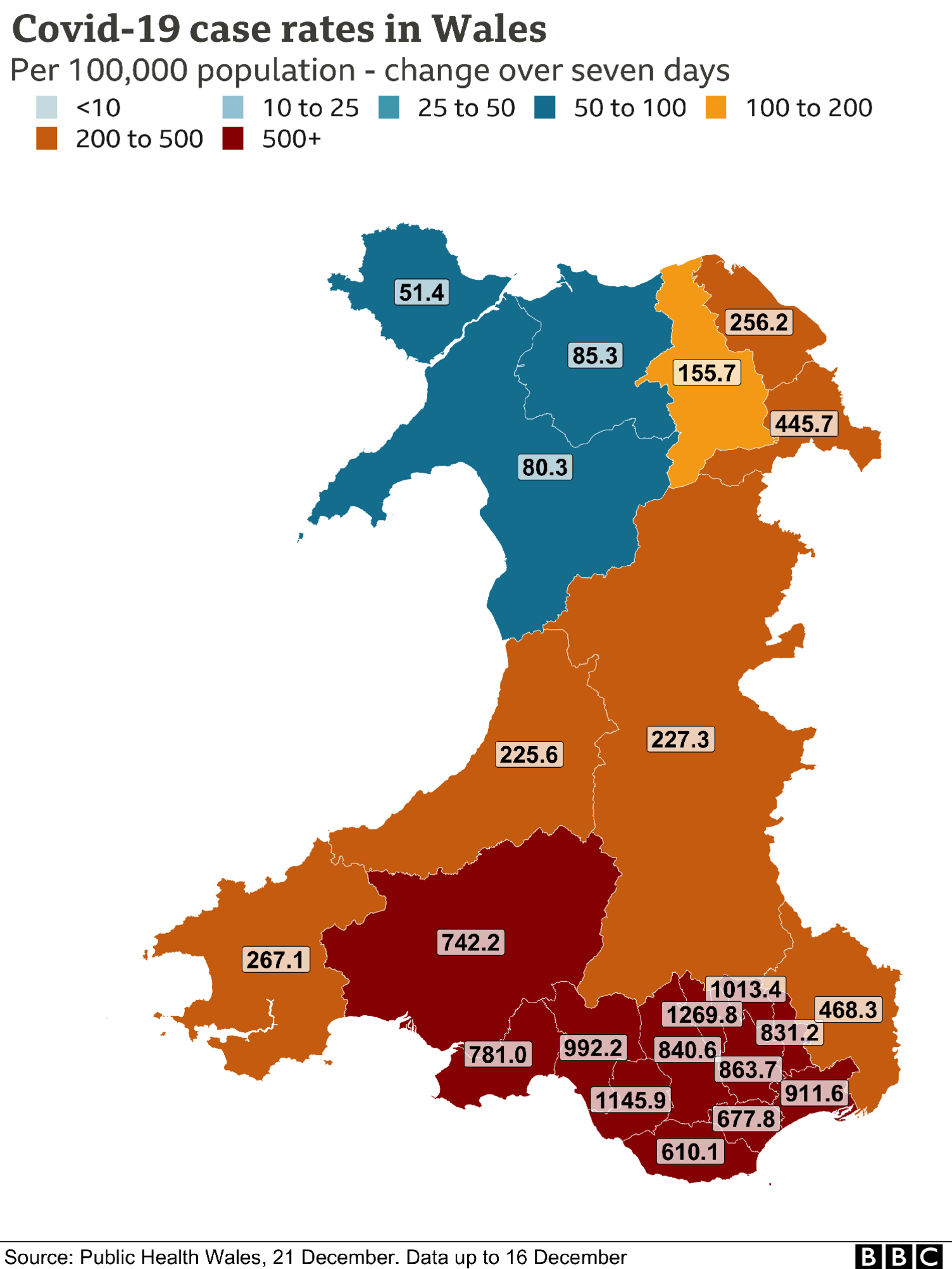

Luke Sibieta, from the Education Policy Institute think tank, said: "Unfortunately, the long-term impacts are undoubtedly going to be quite severe
"Pupils missing out on almost half the year of schooling last year and then a patchwork of inequalities of missed schooling this term will take their toll on children's education.
"There'll be a widening of existing inequalities - particularly as it's tended to be quite disadvantaged council areas where pupils have missed out on most schooling."
Though most absence during the term was due to disruption as a result of positive Covid cases, some families have been anxious about children going to school.
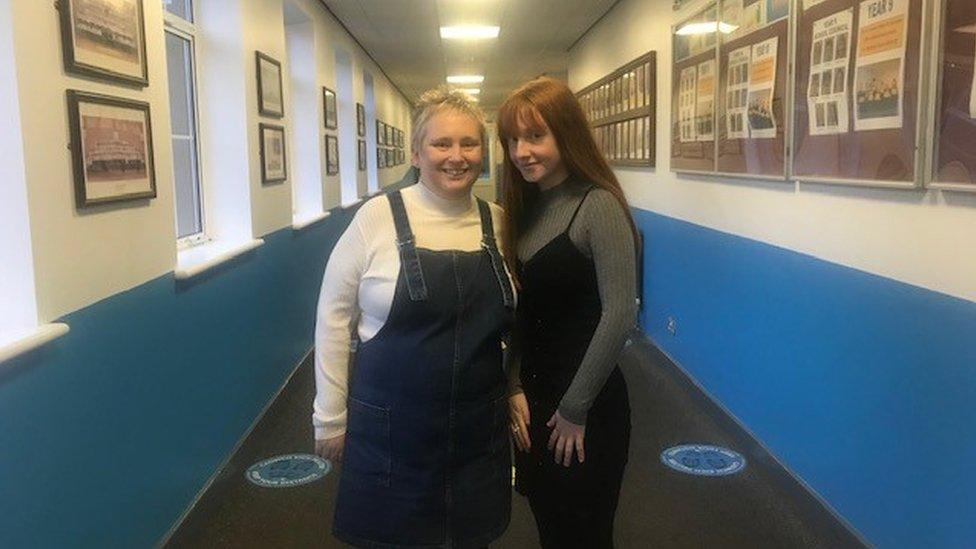
Emily's mother Toni agreed she could stay home due to their health conditions
Emily stopped going to school a few weeks after they reopened in September.
"I was scared to go to school because I was catching the train every day," she said.
"Even though I had my mask I thought I was still going to catch it. I said to mam that I didn't want to go to school. I had anxiety and I was too scared."
Emily's mother Toni initially agreed she could stay at home, adding: "I've got type 2 diabetes and my partner has COPD, external.
"Emily suffers with anxiety for various reasons - so she got a little bit anxious about coming to school.
"We both discussed it and thought the infection rate is rising so we wouldn't risk her coming back and forth to school every day."
After support from teachers and a welfare officer, they agreed Emily would go to school in the mornings but leave at lunchtime to avoid crowded trains.
Toni said: "Covid has got a lot of children and adults anxious. I know a few people who have kept their kids home."
How can children be kept in education?
The family was supported by Carmarthenshire council's schools safeguarding and attendance scheme, with team manager Rhona Evans saying they approach each case individually.
"We've been working towards keeping children engaged in education, even when they physically can't attend," she said.
"So we've supported by taking out hard copies of work, ensuring the families have got access to the digital equity scheme."
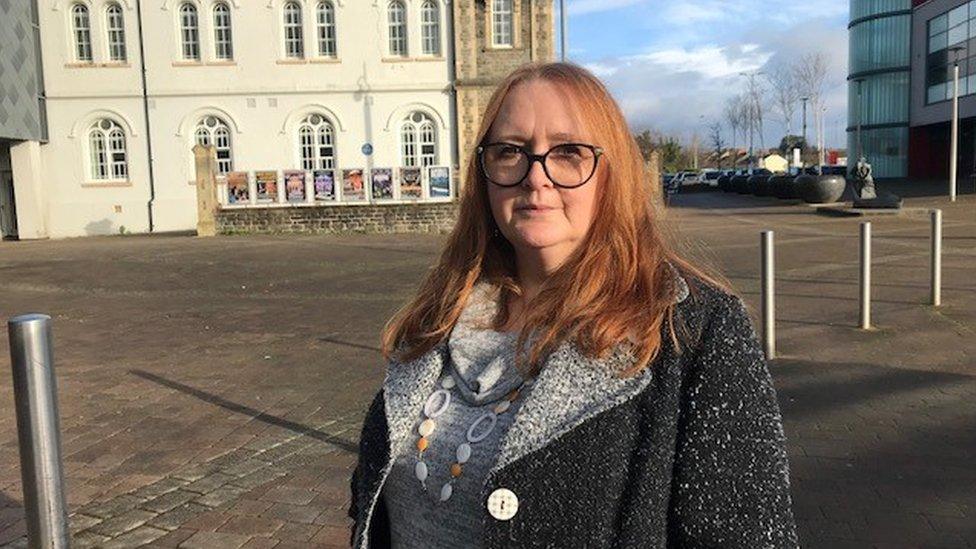
Rhona Evans says children have needed more support than usual
Ms Evans said children were also finding school to be a different place after lockdown, and many needed support with that too.
"They return, and if their year group has to self-isolate again, it sort of knocks them back a bit so they need a bit more support than normal.
"The school environment is very different as well so we've provided a lot of emotional support - far more than we would normally do - because the issues we're facing are far more complex."
'A desperate story'
Hywel Price, head teacher of Ysgol Gymraeg Bro Morgannwg in Barry, Vale of Glamorgan, said pupils having to self-isolate created "insecurity and inconsistency in attendance".
"We have cases in certain schools where pupils have lost up to six, maybe eight weeks, of education due to being in contact with positive cases.
"That's a desperate story. Once you lose that routine and normality it can be difficult to return.
"Pupils, we know, come to schools not just for education, but to see their friends and socialise for a few hours a day. That's a very, very important aspect of education. This kind of insecurity will hit any pupil."
A Welsh Government spokeswoman said: "Schools in Wales have provided a safe, secure and welcoming environment for pupils and staff.
"We recognise that because of local school decisions and factors the attendance rate for pupils have been lower near the end of term.
"However, we'll continue to work with local authorities and schools to ensure education continues for all children and young people with as little disruption as possible."
- Published17 December 2020
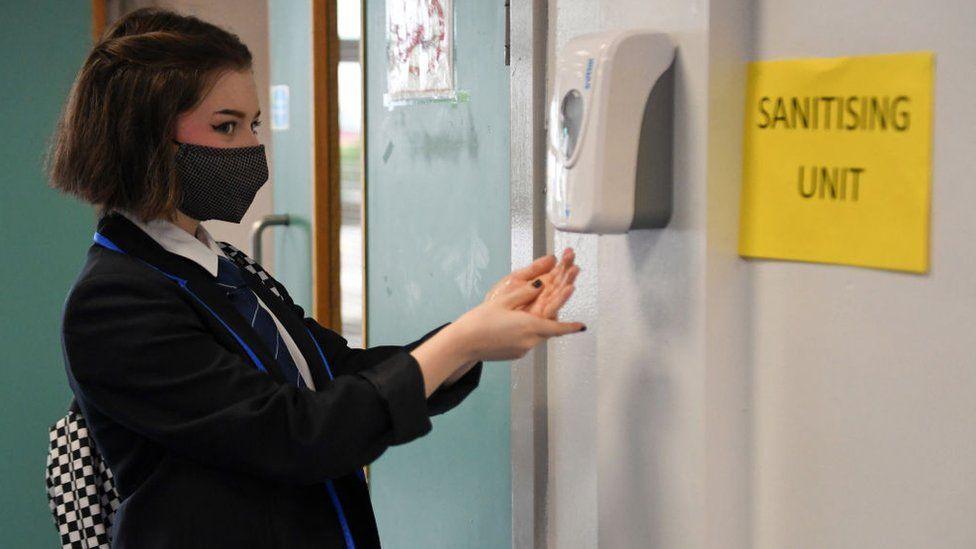
- Published10 December 2020
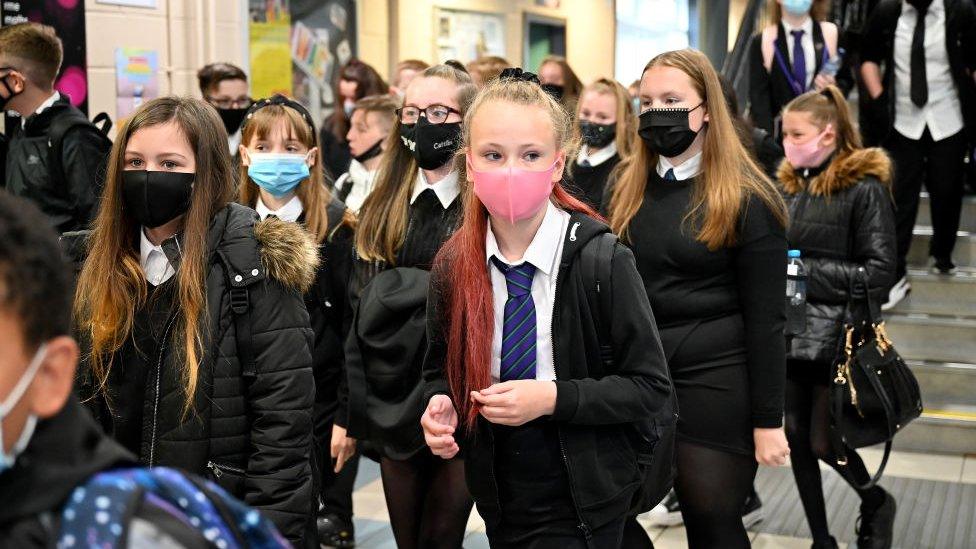
- Published11 December 2020
